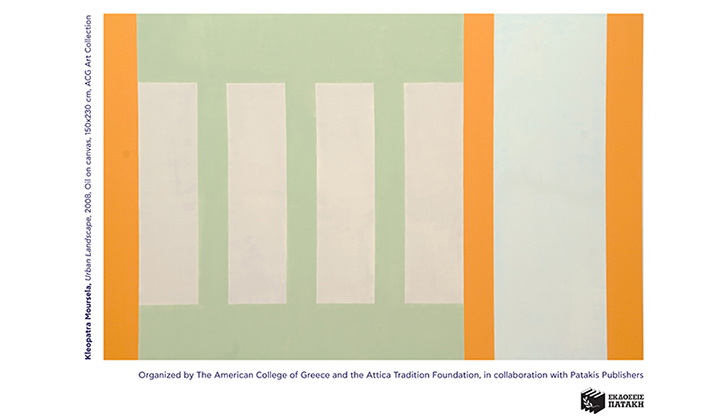
On Tuesday, June 13, the Annual Kimon Friar Lecture took place at the Megaron – Athens Concert Hall, in front of a full audience of academics and guests from the literary and intellectual world of Athens. The American College of Greece, in collaboration with the Attica Foundation and Patakis Publications, were honored to present Pulitzer Prize winning author Richard Ford to deliver this year’s Kimon Friar lecture, exploring the theme “Some Thoughts About Memoir.”
Dr. Haris Vlavianos, poet, translator, and professor of History at Deree – The American College of Greece, took to the stage to introduce the 22nd Kimon Friar speaker. Richard Ford was born in Jackson, Mississippi, in 1944, and is the author of eleven books of fiction, including the New York Times best-selling novels Independence Day and Canada. He is also an essayist and frequently writes for newspapers across Europe. His work has been translated into 28 languages and has won numerous international awards including the Prix Femina in France, The Princess of Asturias Prize in Spain, and the Pulitzer Prize for Fiction in the United States. He is Emmanuel Roman and Barrie Sardoff Professor in the Humanities at Columbia University in New York City.
Dr. Vlavianos described Richard Ford as a leading novelist, comparing him to great authors such as John Updike and Philip Roth. Ford’s novels masterfully reflect today’s America, with all its contradictions and paradoxes that characterize it, explained Dr. Vlavianos while also praising Ford’s smaller projects, calling him “a master of the short narrative.”
Memoirs, the theme of this lecture, arose from Ford’s need to write about his parents, as depicted in his latest and first non-fiction book, Between Them: Remembering My Parents – an exploration of memory, intimacy, and love. According to Ford, who looks to art for consolation rather than religion, “words can shorten the distance that separates people.”
“The great challenge literature faces is that of knowing how to weave together the various branches of knowledge and codes into a manifold and multifaceted vision of the world,” said Dr. Haris Vlavianos, quoting the Italian journalist and writer Italo Calvino and ending the introductory remarks.
“The only true mission of an author is to write a masterpiece,” said the guest of the evening Richard Ford as he began to deliver the 22nd Kimon Friar Lecture. “Being here and talking about memoirs is a relief from politics” he said, humbly commenting on the political landscape of the US, and warning that, “forgetting and ignoring our past is like opening the door to peril.”
Ford noted that by writing a memoir, one reaches the truth very differently than when writing a novel; that is, by focusing on facts, not fantasy. In a memoir, the only right word is the one that strictly describes reality, and the difference between novel and memoir boils down to the choice of words.
The truth of memory is deep, hard, and not at all simple. In an attempt to define the memoir as a separate literary genre, Ford noted that “The memoir establishes a locus for the reader. It is a form of experiential prose which must shape experience, transform events, and convey wisdom. No memoir is alike. And none should be the product of fiction or imagination. Inferior to literature, a memoir is a black sheep; and memory is simply fleeting and unreliable when you attempt to write about it. Anyone can write a novel, but not everyone is able to write a memoir.”
The authenticity of a memoir is found in that it narrates what truly happened. In Richard Ford’s case, the nostalgia he felt for his parents was his motivation for writing. In 1981, he wrote about his mother, and in 2015 he wrote about his father, almost half a century after his death. “If I had written a novel about my parents, I wouldn’t have done them justice,” he commented. “They existed, they were absolutely real, and even though their life wasn’t grand, their mark on my life was very significant.”
“To tell the story of a life is a great endeavor. There are no age limits, and there are no prerequisites when it comes to writing. No one can tell you that you are not capable of writing.’ True courage comes from within,” said Ford, ending the 22nd Kimon Friar Lecture.
